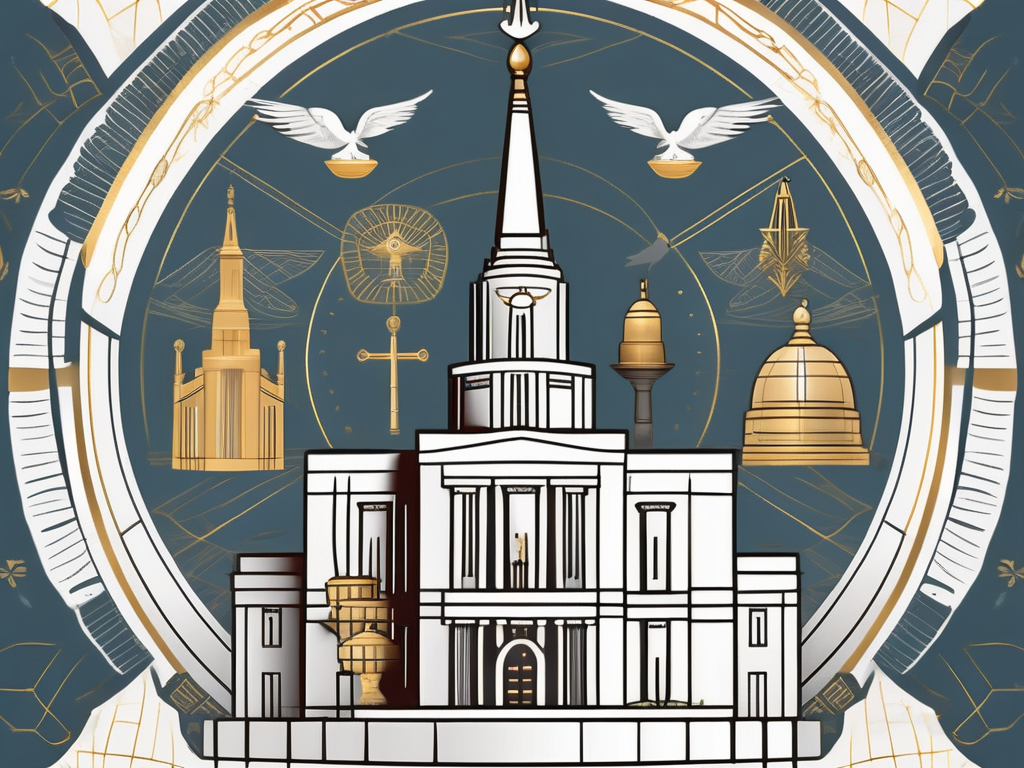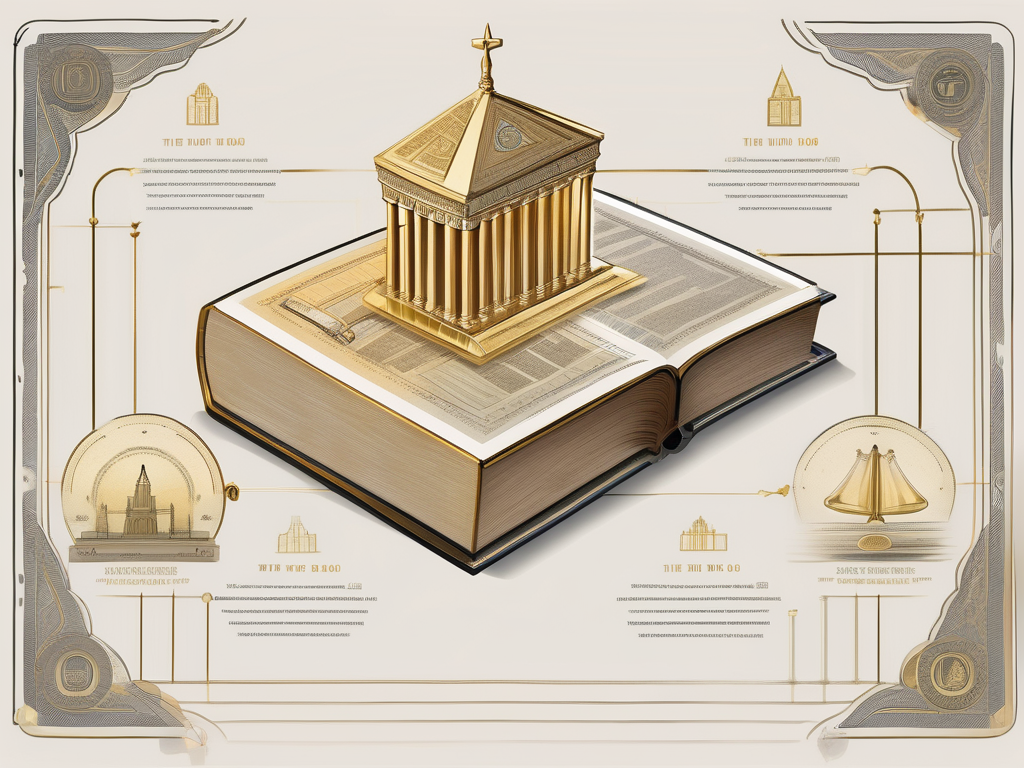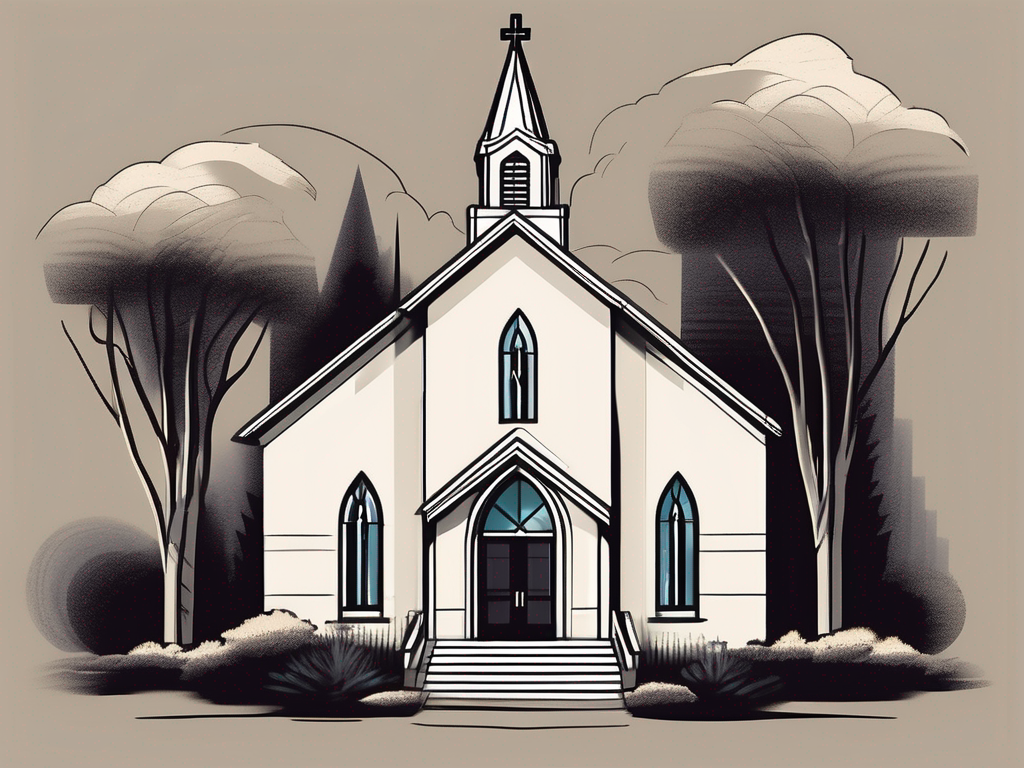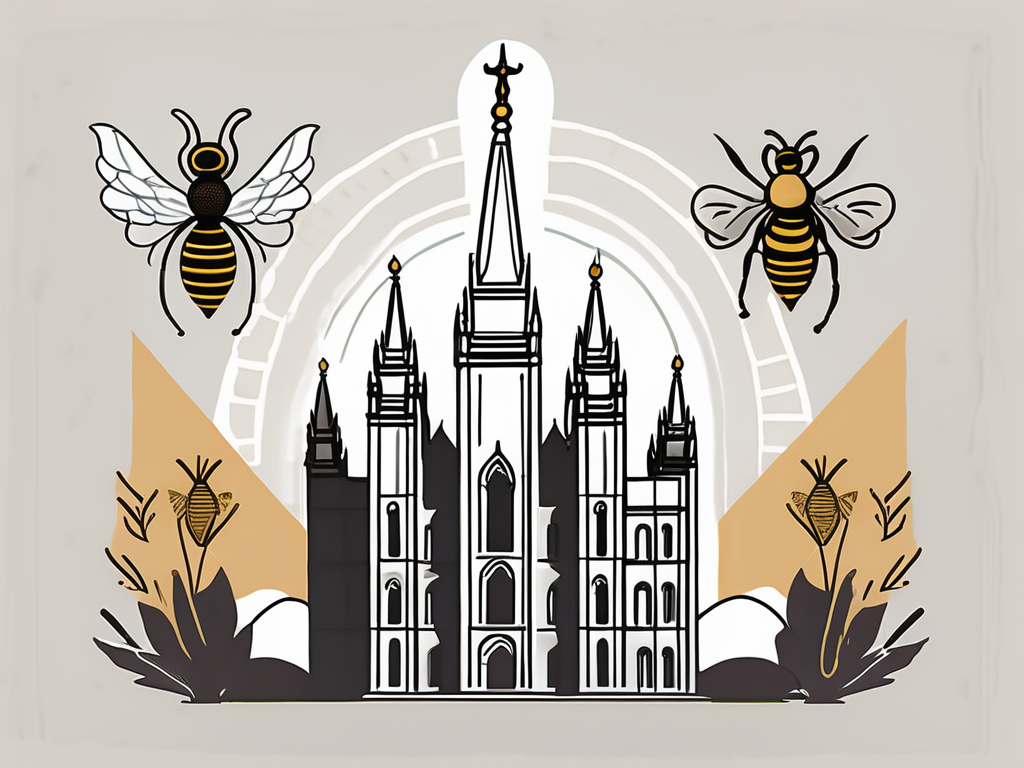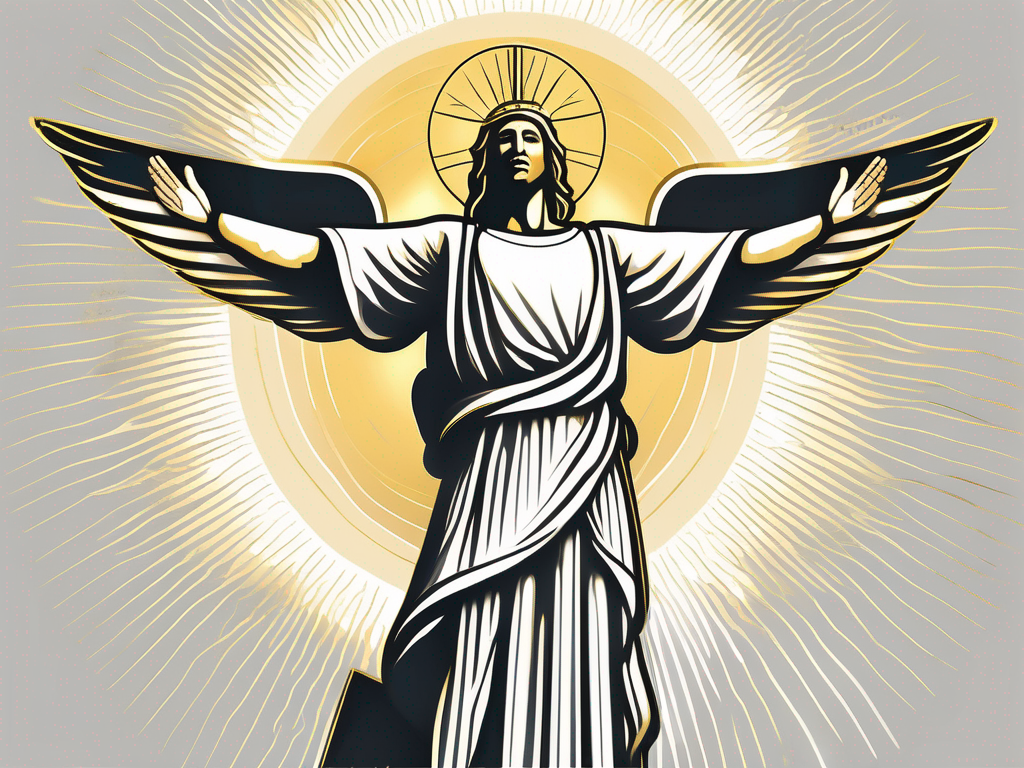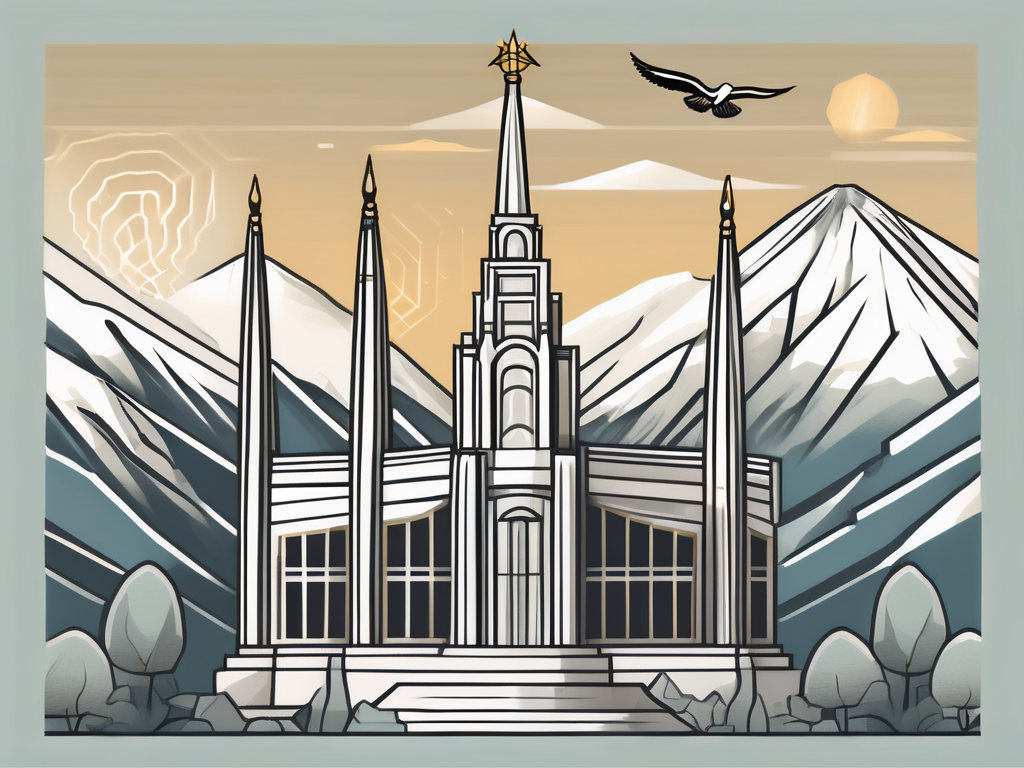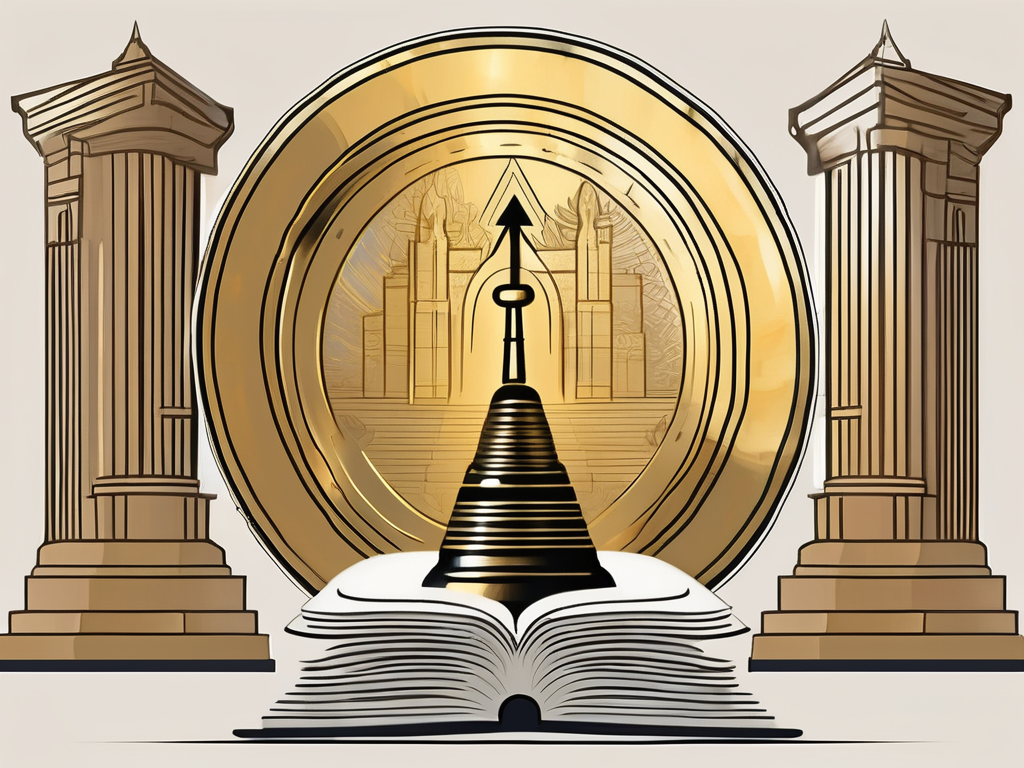Mormonism is a religion that has piqued the curiosity of many. Whether you’re a history buff or simply intrigued by different belief systems, there are some truly fascinating facts about Mormonism that you need to know. In this article, we’ll dive into the basics of Mormonism, explore its unique scriptures, and discover its impact on American history and global society. So, buckle up and prepare to be enlightened!
Understanding the Basics of Mormonism
If you’re unfamiliar with Mormonism, let’s start by unraveling its origin and growth. Mormonism, formally known as The Church of Jesus Christ of Latter-day Saints, was founded in the early 19th century by Joseph Smith. Smith, a young farm boy from New York, claimed to have had divine revelations that led to the restoration of the gospel of Jesus Christ. From those humble beginnings, Mormonism has grown to be a global religion with millions of followers.
But what were these divine revelations that Joseph Smith claimed to have received? According to Smith, he was visited by God the Father and Jesus Christ in a vision when he was just 14 years old. This experience, known as the First Vision, marked the beginning of Smith’s prophetic journey. He claimed that God called him to be a prophet and to restore the true gospel of Jesus Christ, which he believed had been lost over time.
Smith also claimed to have been visited by an angel named Moroni, who directed him to a set of golden plates buried in a hillside. These plates, which Smith translated by the power of God, became known as the Book of Mormon. According to Mormon belief, the Book of Mormon is an ancient record of God’s dealings with the people of the Americas and is considered to be another testament of Jesus Christ.
Now that you know a bit about its history, let’s delve into the key beliefs and practices that define Mormonism. Mormons believe in the divinity of Jesus Christ and view themselves as Christians. They emphasize the importance of family, and the notion of eternal marriage and families being together forever is a central tenet of their faith. This belief in eternal families is rooted in their understanding of the plan of salvation, which teaches that families can be sealed together for eternity through sacred ordinances performed in Mormon temples.
In addition to their focus on family, Mormons place a high value on personal revelation. They believe that individuals can receive guidance and inspiration directly from God through prayer and the Holy Spirit. This emphasis on personal revelation is seen in their practice of regular prayer and their belief in the power of individual spiritual experiences.
Furthermore, Mormons are known for their strong emphasis on education and the pursuit of truth and knowledge. They believe that learning and education are not only important for personal growth but also for the betterment of society as a whole. This belief has led to the establishment of Brigham Young University, a prestigious educational institution owned and operated by the Church.
So, as you can see, Mormonism is a rich and complex religion with a fascinating history and a set of beliefs and practices that shape the lives of its followers. From its humble beginnings in upstate New York to its global presence today, Mormonism continues to be a religion that inspires and influences millions of people around the world.
Unveiling the Fascinating Facts about Mormonism
Now that we’ve covered the foundations, we can move on to some lesser-known facts about Mormonism. One intriguing aspect is their unique set of scriptures.
In addition to the Bible, Mormons also believe in the Book of Mormon, which they consider to be another testament of Jesus Christ. This book, translated by Joseph Smith, tells the story of ancient inhabitants of the Americas and their interactions with Jesus.
The Book of Mormon is divided into several books, including the Book of Nephi, the Book of Alma, and the Book of Mormon. These books contain teachings, prophecies, and narratives that complement the teachings found in the Bible. Mormons believe that both the Bible and the Book of Mormon are essential for understanding God’s plan for humanity.
Another captivating facet of Mormonism is the significance of family in their religious practices. Mormons believe in the eternal nature of families and strive to create strong bonds within their households.
They place a strong emphasis on genealogy and encourage members to research their ancestry to connect with their roots. This practice, known as family history research, involves tracing one’s family tree and collecting information about ancestors.
Mormons believe that by learning about their ancestors, they can gain a greater understanding of their own identity and purpose in life. They also believe that through temple ordinances, families can be sealed together for eternity, ensuring that their relationships continue beyond death.
Family is considered the central unit of society in Mormonism, and they believe that strong families contribute to the overall well-being of individuals and communities. Mormons strive to create a loving and supportive environment within their families, where members can grow spiritually and emotionally.
In addition to their emphasis on family, Mormons also prioritize community involvement. They believe in serving others and actively participate in various humanitarian efforts around the world.
Mormon congregations, known as wards or branches, organize service projects, disaster relief efforts, and community outreach programs. These initiatives aim to improve the lives of individuals and promote unity and compassion among people of all backgrounds.
Furthermore, Mormons are known for their strong emphasis on education. They believe in the pursuit of knowledge and encourage members to seek both spiritual and secular learning.
Many Mormon individuals and families prioritize education and strive for academic excellence. Mormon educational institutions, such as Brigham Young University, provide a unique environment where students can combine their religious beliefs with rigorous academic pursuits.
Overall, Mormonism encompasses a rich tapestry of beliefs and practices that extend beyond the commonly known aspects. From their unique set of scriptures to their emphasis on family, community, and education, Mormons strive to live meaningful and purposeful lives guided by their faith.
Mormonism and American History
Next, let’s explore the historical impact of Mormonism on American society. One notable event is the Mormon migration to Utah in the mid-1800s. Facing persecution and seeking religious freedom, Mormons embarked on a strenuous journey to establish a new home. This migration, known as the Mormon Pioneer Trek, played a pivotal role in the settlement and development of Utah.
The Mormon Pioneer Trek was a remarkable feat of endurance and determination. Thousands of Mormons, led by Brigham Young, traversed over 1,300 miles of treacherous terrain, including deserts, mountains, and rivers. They faced extreme weather conditions, scarcity of resources, and the constant threat of attacks from hostile Native American tribes. Despite these challenges, the Mormons persevered, displaying unwavering faith and resilience.
Upon reaching the Salt Lake Valley in 1847, the Mormons transformed the barren land into a thriving community. They built irrigation systems, cultivated crops, and established towns and cities. Their resourcefulness and hard work turned the desert into a prosperous region, setting an example of self-sufficiency and industry.
Beyond the migration, Mormonism has left a lasting imprint on American culture. From the architecture of their temples to their emphasis on community service, Mormons have contributed to the fabric of society. The iconic Salt Lake Temple, with its grandeur and intricate design, stands as a testament to their architectural prowess and devotion to their faith.
In addition to their religious practices, Mormons have made significant contributions to various sectors. In the field of education, Brigham Young University, founded by the Church of Jesus Christ of Latter-day Saints, has become a renowned institution known for its academic excellence and strong moral values. Mormon musicians, such as the popular Osmond family, have achieved great success and influenced the music industry with their talent and clean-cut image.
Family values are deeply ingrained in Mormonism, and this emphasis on strong familial relationships has had a profound impact on American society. The Mormons’ commitment to marriage, fidelity, and raising children in a loving and nurturing environment has influenced the broader culture’s understanding of family dynamics and the importance of maintaining strong bonds.
Moreover, Mormons are known for their dedication to community service. The Church of Jesus Christ of Latter-day Saints has organized numerous humanitarian efforts, providing aid and support to those in need both within and outside of their faith community. Their commitment to helping others has inspired countless individuals to engage in acts of service, fostering a spirit of compassion and altruism in American society.
The Role of Temples in Mormonism
Temples hold great importance in the Mormon faith. They are seen as sacred places where individuals can make covenants with God and perform ordinances for themselves and their deceased ancestors. These stunning edifices are rich in symbolism, designed to reflect the eternal nature of God’s plan and the pursuit of spiritual growth.
Within these temples, Mormons engage in various rituals and ceremonies that are deeply meaningful to them. These include baptisms for the dead, endowments, and sealings. Each of these practices offers insights into the Mormon view of the afterlife and the eternal bonds of family.
One of the most significant rituals performed in Mormon temples is the baptism for the dead. This practice allows Mormons to be baptized on behalf of their deceased ancestors, giving them the opportunity to accept the gospel and enter into the kingdom of God. Mormons believe that through this vicarious baptism, their ancestors can choose to accept or reject the ordinance in the afterlife.
Another important ceremony conducted in temples is the endowment. This ritual involves receiving sacred teachings, blessings, and promises from God. Mormons believe that through the endowment, they are endowed with power from on high and are prepared to live in the presence of God. The endowment ceremony includes symbolic gestures, clothing, and anointing with consecrated oil, all of which serve to deepen the individual’s connection to God and their understanding of their divine potential.
Sealings, or eternal marriages, are also performed in Mormon temples. These ceremonies unite couples not only for this life but for all eternity. Mormons believe that through the sealing ordinance, families can be sealed together forever, creating an eternal bond that extends beyond death. This belief in eternal families is central to Mormon theology and provides a source of comfort and hope for Mormons.
Temples are not only places of worship and ceremony but also serve as a refuge from the distractions and challenges of the world. Mormons view temples as a sanctuary where they can find peace, solace, and spiritual renewal. The serene and reverent atmosphere within the temple walls allows individuals to focus on their relationship with God and seek personal revelation.
Furthermore, temples are seen as a physical representation of God’s presence on earth. The intricate architecture, meticulous craftsmanship, and attention to detail in temple construction are a testament to the reverence and devotion Mormons have for their faith. The design of each temple is unique, reflecting the cultural and geographical context in which it is built, while still adhering to certain core principles and symbols that are consistent across all temples.
Temples are not open to the general public but are exclusively reserved for faithful Mormons who have met certain requirements and received a temple recommend. This exclusivity is not meant to be elitist but rather to ensure that those who enter the temple are prepared spiritually and emotionally to fully participate in the sacred ordinances and rituals.
In conclusion, temples play a central role in Mormonism, serving as sacred spaces where individuals can make covenants with God, perform ordinances for themselves and their ancestors, and deepen their understanding of their divine potential. The rituals and ceremonies conducted within temples provide Mormons with a sense of connection to God, a glimpse into the eternal nature of the afterlife, and the assurance of eternal family bonds. The beauty and symbolism of temple architecture reflect the devotion and reverence Mormons have for their faith, while the exclusivity of temple access ensures that these sacred spaces are preserved for those who are truly prepared to engage in the sacred ordinances and rituals.
The Global Impact of Mormonism
While Mormonism has deep roots in the United States, its influence extends far beyond its borders. Mormonism has experienced significant growth internationally, with vibrant communities in places like Mexico, Brazil, and the Philippines. This global expansion has added diversity to the Mormon community and enriched it with different cultural traditions and perspectives.
Moreover, the Mormon Church is known for its extensive humanitarian efforts. Mormons are actively involved in providing disaster relief, promoting literacy, and supporting clean water initiatives worldwide. Through their charitable work, Mormons exemplify their belief in the importance of serving and uplifting others.
Conclusion
There you have it – ten fascinating facts about Mormonism that shed light on its history, beliefs, and impact. Mormonism encompasses a rich tapestry of teachings, traditions, and contributions that continue to captivate scholars and individuals seeking spiritual understanding. So, the next time you find yourself discussing religions or exploring new cultural horizons, don’t forget to share these engaging tidbits about Mormonism!
